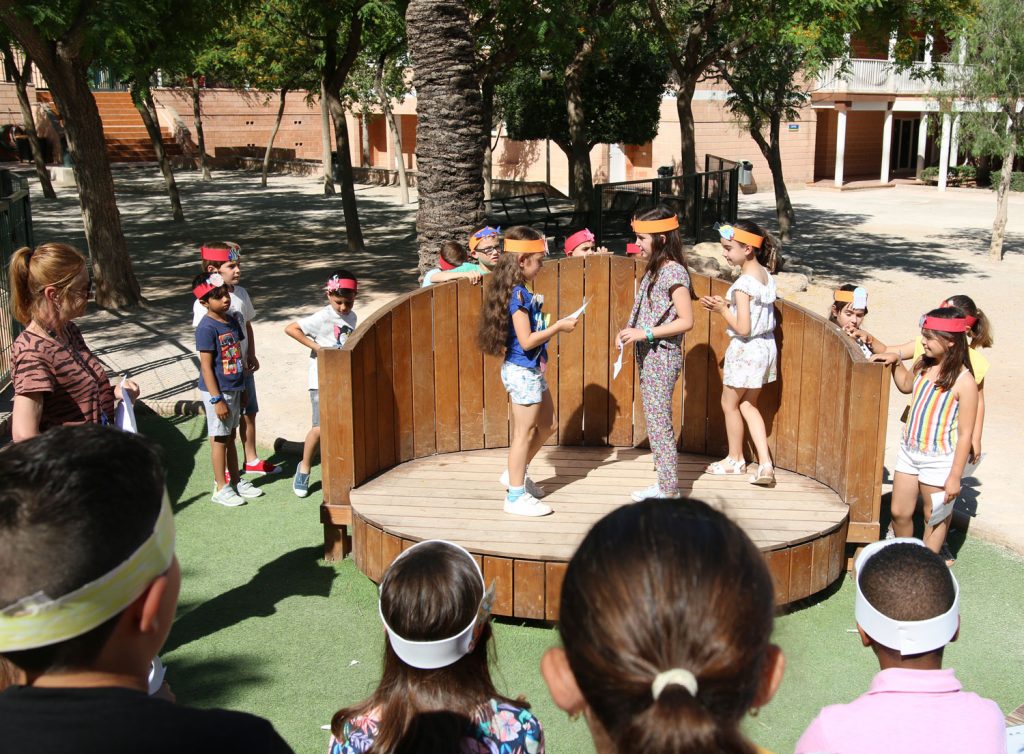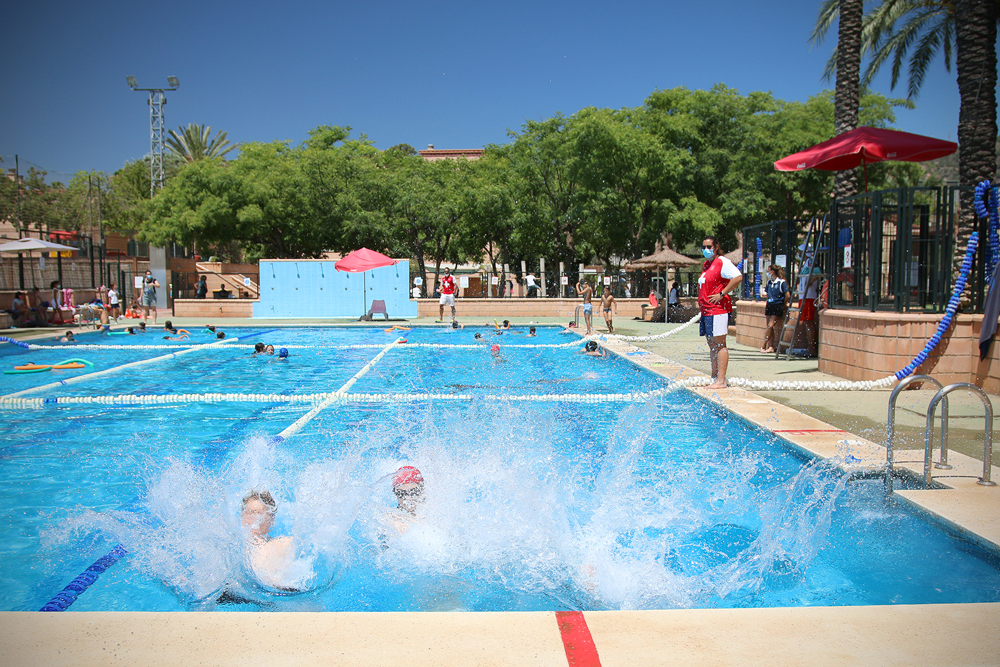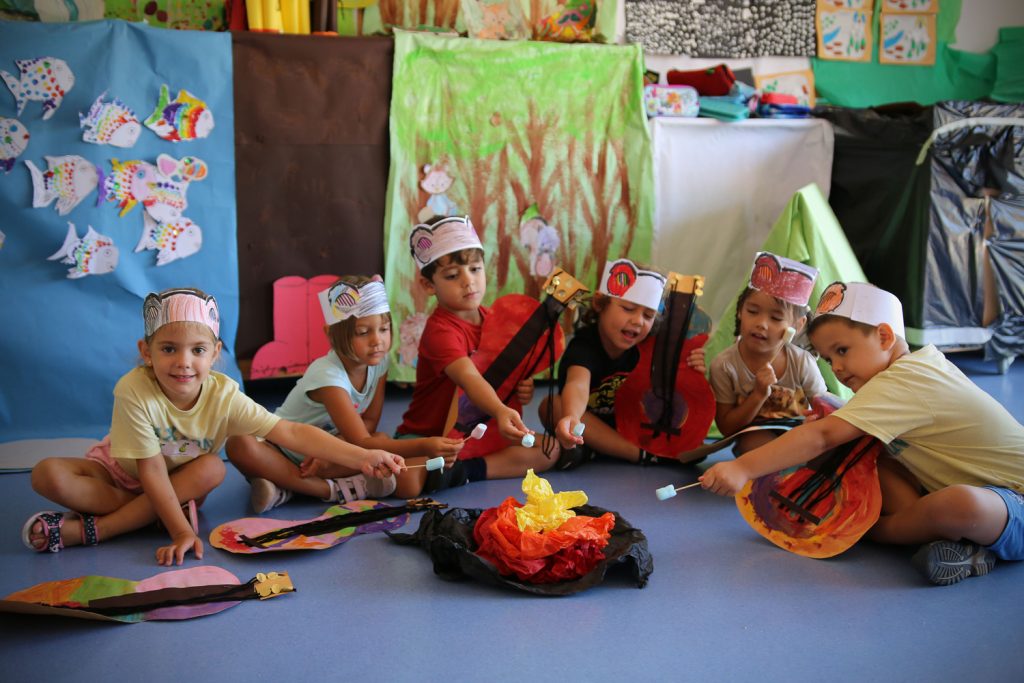
Caxton College te ofrece algunas recomendaciones que te pueden ayudar a la hora de tomar la mejor decisión para iniciar una nueva experiencia de aprendizaje de un segundo idioma.
Las razones van a variar en función de la edad del alumno, sin embargo, en todas ellas confluye la idea de que el conocimiento de la lengua británica cada día se hace más necesario debido a la influencia creciente de este idioma en el terreno de la ciencia, de la investigación académica, de la música, de la economía, de las relaciones empresariales e institucionales y del comercio internacional, entre otros. Es cierto que el español es el segundo idioma más hablado en el mundo y cada día adquiere un mayor protagonismo, aun así, todavía está lejos de estandarizarse como lengua común en entornos cualificados profesionales de ámbito internacional.
Etapa infantil
Cuanto antes nos enfrentemos al aprendizaje de una segunda lengua, mejores serán los resultados de futuro. Los pedagogos llevan tiempo advirtiéndonos que el cerebro está mejor preparado para el aprendizaje en los primeros años de vida debido a su plasticidad. Y es que el cerebro nunca volverá a desarrollarse tan rápido como en ese período en el cual se adquieren los mecanismos que le permitirán aprender en el futuro.
Por ello, parece que esta etapa es un momento idóneo para que los niños se enfrenten al inglés en un centro especializado donde el aprendizaje se enfoque como un juego, ya que éste es el principal camino que tienen para conocer el mundo que les rodea. Y es que la creatividad, adherida a los momentos lúdicos, ayuda a mejorar el lenguaje y la comunicación en general.
Adolescentes
En esta etapa de desarrollo hacia la madurez, las actividades en las aulas deben ser eficazmente persuasivas, ya que en esta etapa los alumnos suelen estar más dispersos. Por eso, es necesario atrapar su atención con recursos didácticos que apelen a sus gustos culturales y de ocio (libros, música, redes, vídeojuegos) para que se identifiquen con ellos y sientan mayor atracción por las clases. En este sentido, es muy importante que el centro cuente con recursos adecuados, así como con espacios educativos bien definidos, para que los alumnos tengan la oportunidad de expresarse y aprender a través de estimulantes propuestas educativas que conecten con sus emociones.
Adultos
A pesar de que es muy aconsejable empezar a estudiar inglés desde pequeños, esto no es excusa para que a cualquier edad no nos enfrentemos a este nuevo reto. Y es que los adultos también cuentan con ciertas ventajas para conquistar este segundo idioma. Su experiencia educativa previa y el conocimiento gramatical de su propio idioma ayudan a que su evolución pueda ser admirable en muchos casos. Porque, como decíamos al principio de este artículo, el desconocimiento del inglés impone muchas limitaciones profesionales e implica un aislamiento respecto al mundo globalizado, de manera que se pierden muchas oportunidades de negocio y desarrollo laboral.
La falta de tiempo tampoco debería suponer un impedimento para adentrarnos en la lengua de Shakespeare. Los sábados pueden ser un buen momento para enfrentarnos a este nuevo reto en clases dinámicas donde prime la conversación, el debate sobre temas de actualidad y la puesta en escena de roles profesionales.
Dónde y Cómo
Es importante dedicar un tiempo prudencial a la búsqueda del centro académico más adecuado para aprender inglés. Algunos de los factores que debemos tener en cuenta para seleccionarlo podrían ser, entre los más destacados, los años de experiencia del centro, su especialización en el inglés, el tipo de aulas digitalizadas, de recursos didácticos innovadores y de áreas al aire libre para el aprendizaje lúdico en los más pequeños, un profesorado nativo cualificado o la fidelización del alumnado.
Del mismo modo, el método de estudio debe ser otro de los elementos para tener en cuenta la elección del centro. Cómo enseñar inglés puede variar mucho entre un lugar y otro. Es recomendable que su enseñanza esté dirigida a mejorar el rendimiento del alumno a diario, pensando el idioma como un concepto cultural amplio y no sólo gramatical. Por ello, metodologías que envuelven la enseñanza de la legua con música, literatura, arte, y todo aquello que tiene que ver con la vida cotidiana y el “rumor” del lenguaje, son las que ayudarán al alumno, de cualquier edad, con mayor intensidad.
Profesorado
La idea de que quien habla bien inglés está capacitado para dar clases de esta materia, afortunadamente, se está extinguiendo. Del mismo modo que por muy bien que sepamos conducir un coche nunca enseñaremos a conducir a nuestros hijos, sino que lo dejaremos en manos de los profesionales de la autoescuela, con el inglés debemos actuar de la misma forma. De este modo, los profesores de un centro educativo dedicado a la enseñanza del inglés deben ser nativos, o como mínimo, tener una experiencia profesional en países de habla inglesa, además de estudios cualificados que garanticen la solvencia de su conocimiento. A su vez, todos deben demostrar que cumplen con capacidades para la enseñanza reglada en grupo.
Si tienes interés en que alguien de tu entorno empiece a familiarizarse con el inglés, el colegio británico Caxton College ofrece todos los sábados por la mañana cursos de inglés para todas las edades y todos los niveles: https://caxtoncollege.com/ingles-los-sabados/ingles-los-sabados/
Why, where and how to learn English
Caxton College can offer you a few helpful recommendations when it comes to deciding on where and how to embark on the exciting experience of learning a second language.
The reasons for learning a second language will vary depending on the student’s age and many other factors, but all of them will revolve around the same idea: that learning English is becoming ever more necessary in today’s world, thanks to the growing influence of the language in the fields of science, academic research, music, economics, business and institutional relations and international commerce, among others. While it is true that Spanish is the second most widely spoken language in the world, and that it is gaining more importance with every passing day, even so, it is still a far cry from becoming the standard, common language in a professional or academic international setting.
During childhood
The earlier we start learning a second language, the better the results will be later on. Educators have been telling us for years that the brain is best prepared for learning during the first years of a child’s life, due to its malleability. The truth is that the brain will never again develop as rapidly as it does during these early years, the period in which the mechanisms that allow the child to learn in the future are acquired.
For this reason, it is obvious that this is the ideal moment for children to be introduced to English for the first time in a specialised centre, where learning is presented as a game, the main way children find out about the world around them. Also, the creativity gained during these hours of play can later help them to improve their language skills and with their communication in general.
Teenagers
At this stage of a child’s development towards maturity, classroom activities must be effectively persuasive, as this is the age when students are most likely to be lacking in concentration. For this reason, it is necessary to capture their attention with teaching resources that appeal to their cultural and leisure preferences (books, music, websites, video games, and so on), so that they can identify with the material and want to take part in the classes. In this sense, it is very important that the school or college has enough of the right resources, as well as clearly defined educational spaces, so that the students have the opportunity to express themselves and learn through stimulating educational methods that connect with their interests and feelings.
Adults
Although it is best to learn a second language as a child, this is still no excuse for not taking on the challenge when we are older! Learning a new language from the perspective of an adult can have its advantages too. Our education, combined with what we know of the grammar of our own first language, can help us to acquire a second one with amazing speed at times. Because, as we said at the beginning of this article, an inability to speak English can imply professional limitations and even a certain isolation with respect to the globalised world, so much so that it can lead to missing out on valuable business opportunities or professional advancement.
Neither is a lack of time an obstacle when it comes to exploring the language of the Bard. Saturdays can be an excellent time to tackle this challenge, in dynamic classes where conversation plays a key role, and where we can debate current affairs and our roles as professionals with our peers.
Where and how?
It is essential to dedicate some time before we start, to researching the most suitable academic centre in which to learn English. Among the many factors to take into account when choosing, one of the most important should be the academy’s years of experience, its specialisation in English, what type of digital classrooms it has, the innovative educational resources provided, any outdoor areas where children can learn, its qualified native teachers or student loyalty.
In addition, the method used has to be another of the key elements to bear in mind when picking a place to study, as the teaching of English can vary greatly from one centre to another. It is recommended that the teaching of English should aim to improve the student’s daily performance, considering the language as a wide, cultural concept, and not just a question of grammar. For this reason, methodologies that present the teaching of the language through music, literature, art and everything related to daily life and the use of language in everyday situations will help any student, of any age, to learn with greater intensity.
Teachers
The old idea that anyone who speaks English is qualified to give classes on the subject is, fortunately, disappearing. By the same rule of thumb that says that even if we know how to drive, we should never teach our children ourselves, but rather leave it to the driving school professionals, with a new language we should do the same. Therefore, the teachers in an educational centre dedicated to the teaching of English should be native, or at the very least, have professional experience of teaching in English-speaking countries; they should also be appropriately qualified so as to guarantee their knowledge of the subject. At the same time, they should be able to show that they can meet with the demands of teaching a group of students.
If you are interested in encouraging one of your friends or family to learn English, the British school Caxton College offers courses in English for all ages and levels on Saturday mornings. Find out more here:
https://caxtoncollege.com/ingles-los-sabados/ingles-los-sabados/

















